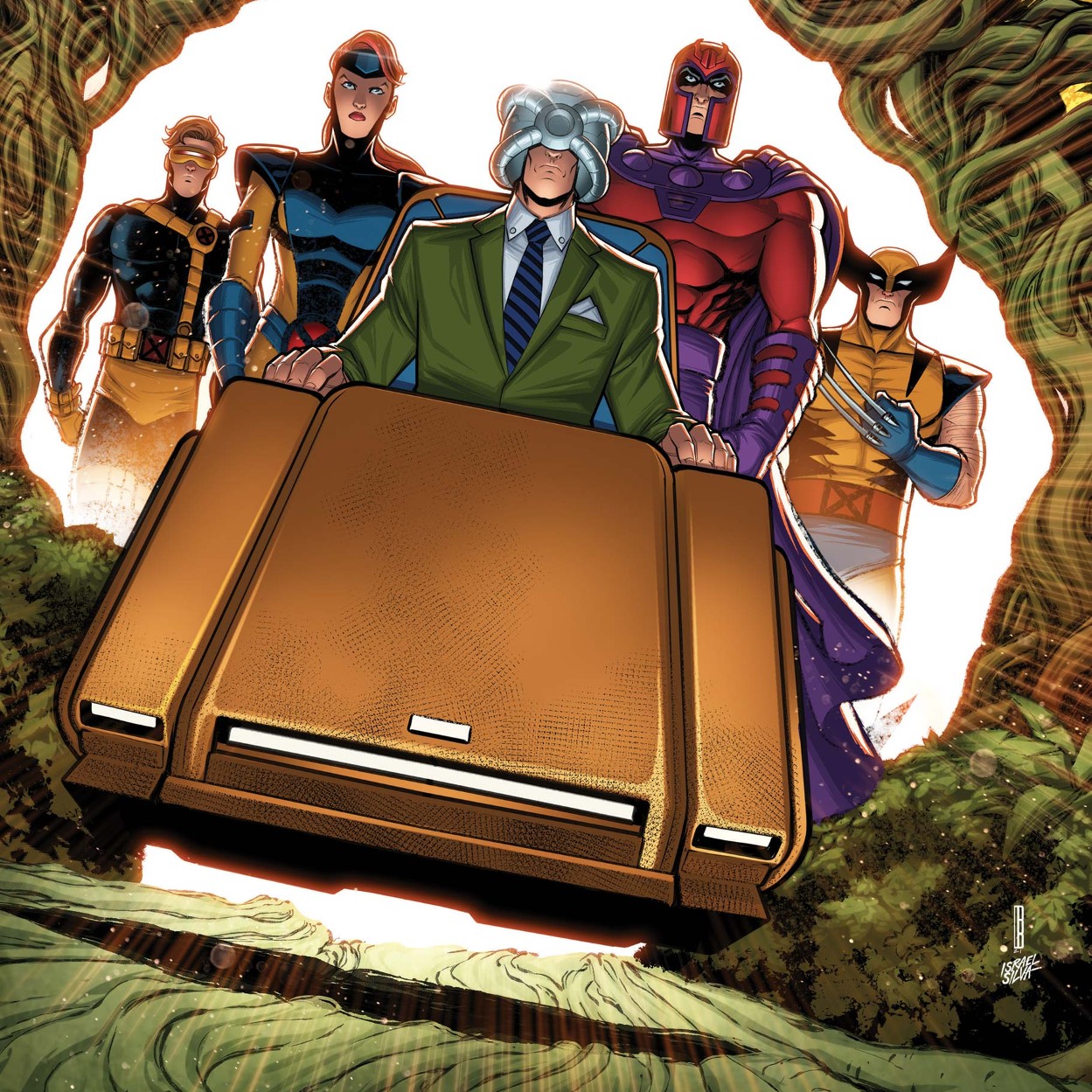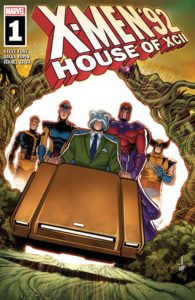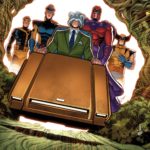
 Krakoa is totally rad in X-Men ‘92: House of XCII #1, reimagining a beloved era of the franchise through the lens of Jonathan Hickman’s mutant epic.
Krakoa is totally rad in X-Men ‘92: House of XCII #1, reimagining a beloved era of the franchise through the lens of Jonathan Hickman’s mutant epic.
Even before the rise of the multiverse as a concept in popular fiction, alternate universes have always been big in superhero comics. These characters are archetypes that you can twist and transform into new versions of themselves based on one simple question: “What if ______?” In the case of X-Men ‘92: House of XCII, the guiding hypothetical is, “What if Krakoa was founded much, much earlier?”
House of XCII generally pulls from the status quo of the early ’90s, most popularly seen in the classic (and recently revived) animated series, with each character looking and acting precisely as they did back then. But in this version of 1992, one X-Man’s untimely demise serves as the impetus for Xavier and Magneto to establish the sovereign mutant nation of Krakoa, convincing every mutant in the Marvel Universe to band together for the first time in their existence. But much like our Krakoa, there are secrets upon secrets hiding out of sight that threaten to undo the entire endeavor just as quickly as it began…
Having watched episodes of it as an adult somewhat recently, there’s a reason why the X-Men cartoon has endured for so long. It’s iconic. Arguably it’s one of the most faithful adaptations of any comicbook property that really translated the feel of the comics from that era into another medium. Because of that, any new work based on that specific iteration is going to have the challenge of overcoming its inherent derivativeness (transcending what is essentially a copy of a copy). This isn’t the first time Marvel has done a new comic series based on the ’90s cartoon, but the novelty of transplanting it to Krakoa is a genius move that actually complements the current X-Men line’s thesis. Could Krakoa have happened earlier, under different circumstances? Or is it doomed to fail because it came along much earlier in the timeline than it was “supposed” to? It’s an interesting narrative tension that contrasts the primary color jubilance of this place in time, and I’m curious to see if that’s a question that will be answered by the story’s end.
The creative team assembled for House of XCII is near-perfection for its intended goal. Writer Steve Foxe is obviously a child of the ’90s with great affection for that era and brings that to his script. You could very easily read the dialogue of these characters in the voices they had in the cartoon without it sounding unnatural or off, but there’s also a subtle level of sophistication involved that probably exceeds what the original series ever displayed. (It was, after all, a cartoon intended for children who would now be reading this as not-children.) Salva Espin matches Foxe’s energy with the art, giving it an animated, zany appeal that resembles the vibe of the cartoon without exactly resembling or recreating it. It feels like a cartoon in the way that the original felt like a comicbook, bringing it all full circle.
But I’d be remiss if I didn’t also mention Jay Bowen’s visual design for the book, transporting readers back to this era with incredible graphic art that reminds us we’re in the early ’90s. The stark, utilitarian info pages popularized in the current comics appear in this series in Tiger Beat-esque layouts, complete with every color ever invented and no shortage of squiggly lines and other superfluous shapes. From head to toe, X-Men ‘92: House of XCII #1 is a nostalgia-tastic package that actually delivers on its premise and offers an intriguing alternate version of events that makes you appreciate everything it’s riffing on even more than you already did.


![[REVIEW] MARAUDERS #11](https://geekd-out.com/wp-content/uploads/2020/08/marauders-11-featured-150x150.png)

